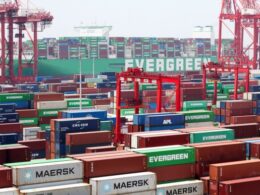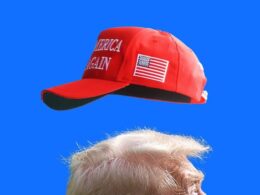Unlock the Editor’s Digest for free
Roula Khalaf, Editor of the FT, selects her favourite stories in this weekly newsletter.
Roche is in talks with the US government to cut out the pharmaceutical industry’s intermediaries and sell medicines directly to patients, as drugmakers try to see off the threat of dramatic price cuts under President Donald Trump’s proposed reforms.
Thomas Schinecker, Roche’s chief executive, said half of all the earnings in the supply chain went to intermediaries, known as pharmacy benefit managers, who take “zero risk” on innovation.
“So if the United States would like to cut prices by 50 per cent, it’s very easy. We go direct. And this is one of the discussions that we’re having with the United States, and that would bring down costs quite quickly,” he said.
Trump has signed an executive order proposing a “Most Favoured Nation” drug pricing policy, which would insist that pharmaceutical companies give the US the best price on medicines out of any countries with at least 60 per cent of the US’s GDP per capita.
If implemented, this would be a significant hit to the industry in its largest market, because drugs are on average 2.3 times more expensive in the US than in 32 other OECD countries, according to research by the Rand Corporation for US health and human services department.
But the industry has long blamed high drug prices in the US on the complex system that means that the companies that control the formularies of which drugs received reimbursement from insurers take a large cut.
In the first half, Roche reported sales of SFr30.9bn ($39bn), up 7 per cent year on year at constant exchange rates, and slightly higher than the consensus forecast for SFr30.8bn. Core diluted earnings per share were SFr11.1mn, above the average analyst estimate of SFr10.5mn.
Roche stuck to its full-year guidance for 2025, for an increase in group sales in the mid-single digit range, and core EPS in the high single-digit range. The drugmaker said it was prepared for any potential tariff impact this year because it had expanded manufacturing and moved inventories into the US.
The pharmaceutical industry has so far escaped Trump’s tariffs, but the president suggested he could hit the sector with levies of up to 200 per cent. Roche announced plans in April to invest $50bn in the US in manufacturing and research and development.
“We hope that the US government, then also sees, with all the investments that we and other companies are making, that the companies are intending to produce the medicines that are needed in the US, for the US,” Schinecker said.
Source link









